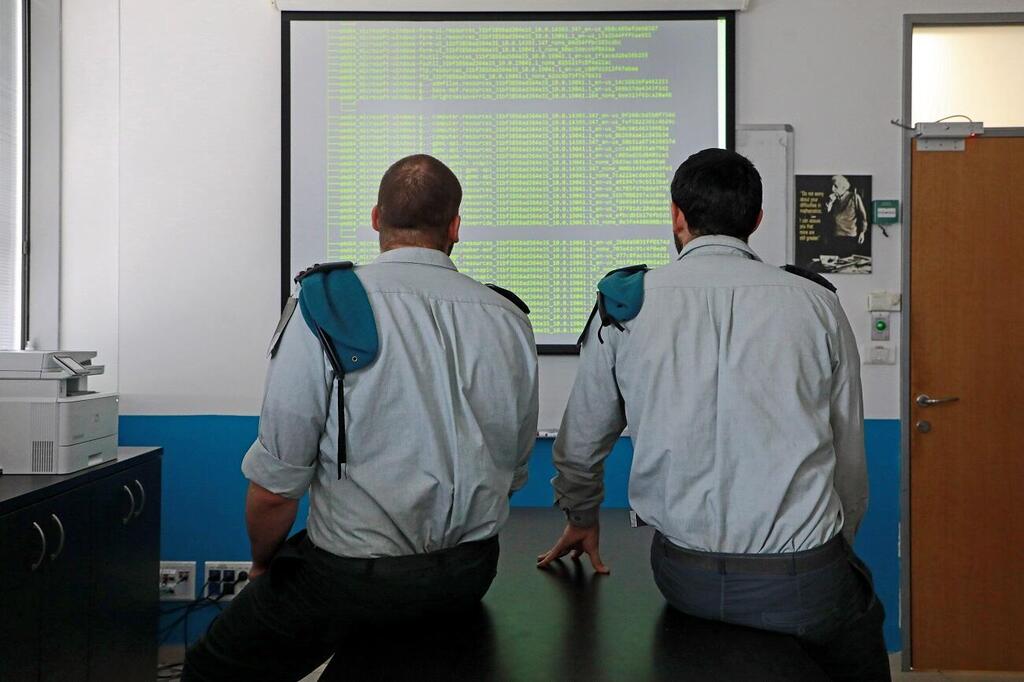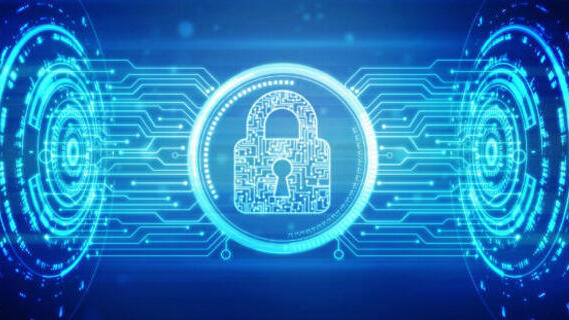The artificial intelligence craze sweeping the planet has not skipped intelligence and defense systems, especially since the Israel Defense Forces and many other western militaries have been utilizing it for years - but it's the leap in generative AI that is noteworthy.
How quickly has every child been able to transform himself into a professional painter, author and even hacker, is a phenomenon that we all need to take a pause for and be mindful of, as it exemplifies how quickly forceful technology has made the shift from obscure laboratories, hidden from public view, to the every child's bedroom.
Take quantum computing, for instance.
The crumbling of cipher keys has become every security system's biggest nightmare scenario for 2023. We're talking about a situation in which internal communications, computer networks and operational documents become publicly exposed, which will surely signal an unprecedented security breach.
As far as Israel goes, it was in 1997, when the Ansariya ambush, in which a unit from the Israeli Navy’s special operation unit, Shayetet 13, on a mission in South Lebanon, stumbled into a deadly ambush by Islamic Resistance guerrillas, leaving 12 operatives dead.
While in a civilian context the day-to-day war of attrition against hackers is conducted in the name of protecting private clients and patents, in the military realm, it is about protecting a country's strategic assets.
In a more narrowly defined Israeli context, it means protecting the Iron Dome missile defense system, the digital emergency alarm array and operational details ingrained in top secret IDF plans.
Cyberwarfare is divided between military intelligence and C4I corps, the IDF's elite technological unit. The Cyber Defense Brigade was established six years ago, and the most intriguing component of that brigade is the Center of Encryption and Information Security.
That's where ciphers and codes are developed, serving the IDF, Shin Bet, Mossad and many other governmental bodies.
The Center of Encryption and Information Security officials say that the most convenient part of cyber is dealing with what's known and familiar. The future, on the other hand, gets trickier to deal with, and that entails quantum computing.
It is a rather advanced processing method, based on observations made in quantum mechanics. "Quantum computers will be able to instantaneously perform tasks that today's computers would require at least a millennia. They would easily crack today's ciphers," a lieutenant colonel from the unit says.
"When you currently connect to your bank account, work, email or WhatsApp, various components ensure the security of your access. One crucial element is an algorithm called RSA, which relies on intricate mathematical problems," he says.
"While these problems can theoretically be solved, they are notoriously complex and time-consuming, even for supercomputers. However, with the advent of quantum computers, RSA encryption could be defeated within seconds.
"This implies that hackers or adversaries would possess nearly limitless computing power to decrypt traditional ciphers. Consequently, sensitive and encrypted data could be compromised today, with the potential to decrypt it once a quantum computer of sufficient strength becomes accessible," the lieutenant colonel explains.
Could this danger materialize tomorrow?
"That would depend on your definition of tomorrow. Major technology companies are already demonstrating remarkable advancements in this domain, with estimates suggesting that they will develop a stable and dependable quantum computer within the next five to 10 years.
"From the perspective of the IDF, this timeline is alarmingly brief. We consider it highly likely that within the coming decade, quantum computers will fall into the hands of entities interested in accessing the IDF's classified information. Consequently, we have been diligently studying this subject since the mid-2000s."
Why is it so difficult?
"Keep in mind, this is uncharted territory," says a major in the unit. "Here, we do not rely on pre-existing textbooks or established foundations. We are tasked with starting from scratch, immersing ourselves in comprehensive self-learning and research. What's more, we take on the responsibility of developing our own curriculum and training individuals from the ground up."
Aside from its computational applications, quantum technology has the kind of applications that could rival an episode of "Star Trek." Many of these advancements are poised to have a profound impact on the military system, with some already being partially realized.
An example of this can be observed in the use of Lidar technology, which employs quantum sensors for laser-based object mapping. It is already integrated into autonomous vehicles, smartphones and is instrumental in generating highly detailed maps.
Quantum sensors will also enable remarkably precise navigation, independent of GPS satellites or similar systems. Furthermore, quantum communication promises stable and secure connections over considerable distances, often spanning dozens of miles.
But with many of those serving in these specialized cyber units ranging from 18 to 30 years of age, it raises the question: How would a bunch of kids solve problems that the planet's finest minds are still struggling with?
The lieutenant colonel is optimistic about that. "First, and this may sound trite, I firmly believe in the exceptionalism of the 'Jewish mind,' particularly in the realm of mathematics. Since its inception, the proportion of graduates from the mathematical field who have gone on to become esteemed doctors and professors in academia is remarkable.
"Second, the IDF possesses a unique advantage in its ability to bring together the brightest minds in one place, all working toward solving the same problems. Unlike academia, where minds are dispersed and lack a unified mission, the IDF provides a concrete operational context for our missions.
"Moreover, we receive continuous support from reserve personnel and external consultants who have successfully passed through rigorous security clearance protocols. The IDF benefits from a wealth of research knowledge accumulated over decades."
How do you research quantum computing with a quantum computer?
"The research we conduct is based on algorithms and, in theory, it can be performed since we understand the behavior involved. However, it's evident that for demonstration and testing purposes, a quantum computer is necessary, which is currently unavailable in Israel.
"To overcome this limitation, we rely on quantum computing services provided by prominent international software giants through the cloud. We make use of these services extensively for our research endeavors."




